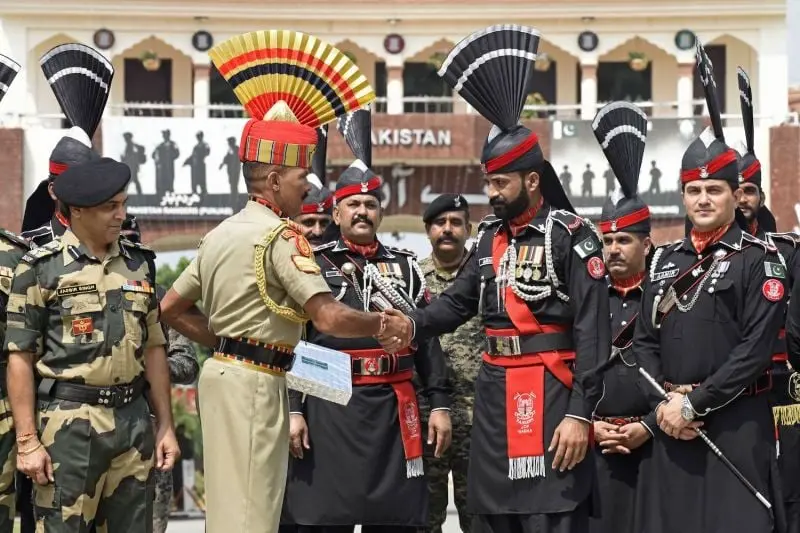Yerevan and New Delhi have announced cooperation in the South Caucasus. The countries voiced this at the opening of the Raisina Dialogue, the largest international expert forum in India in 2024. However, it is not only India that is interested in the South Caucasus. Pakistan and Azerbaijan have long-term, one might even say fraternal relations, under which a common cultural and historical base is being built, a common approach is being formed in the field of regional and global problems. The cooperation also affects military-technical teamwork. Two alliances are forming before our eyes, which are potentially able to balance each other. At the same time, it cannot be said that all four of the above-mentioned countries have designated the South Caucasian direction as their priority. However, as relations between India and Armenia strengthen, so does the one between Pakistan and Azerbaijan. What will the balance of power in the region look like? Will it acquire any specific geometric shape? Or is it indescribable because of the diverse goals of all the players involved, especially given the specifics of the relationship between New Delhi and Islamabad?
It is history that dictates the relationship between any country. India and Armenia are no exception. Historically, the Indian cities of Calcutta, Mumbai, and Chennai once had large Armenian communities. Pakistanis, to justify their ties with Azerbaijan, like to recall how, at the beginning of the twentieth century, a group of Azerbaijani patrons sent 300,000 plague vaccines to British India, which helped contain and subsequently overcome the epidemic. This generous gesture is remembered and cited by many historians in Pakistan. But what is overlooked is the fact that at that time the idea of creating Pakistan had not yet been formulated. However, there were also dark moments that are usually preferred to be overlooked: Armenians settled not only in India, but also in the territory of modern Pakistan, in Balochistan. Therefore, both India and Pakistan operate with history as best they can.
If we ignore the dubious background of the Armenian-Indian and Azerbaijani-Pakistani relations, then the conditions of the formation of Armenia and Azerbaijan have had a key influence on today’s interaction. Islamabad has established diplomatic relations with Baku, completely ignoring the possible establishment of contacts with Yerevan. The Pakistani elites pursued two goals. First, allied relations with Turkey, which traditionally supports Azerbaijan from all points of view, necessitated the entry into an alliance with Baku.
The second is the content of the Nagorno-Karabakh conflict, which is extremely similar to the conflict between India and Pakistan. In their joint statements, Pakistan and Azerbaijan constantly emphasize the similarity of “aggressive actions to violate territorial integrity” towards them and “the indifference of the international community to the problems of Karabakh and Kashmir.” Armenia did not seek favor in Islamabad, but turned its gaze to New Delhi. On the Kashmir issue, Yerevan supported India’s position, so Islamabad focused its efforts on building a geopolitical triangle with Turkey and Azerbaijan.
The second is the essence of the Nagorno-Karabakh conflict, which is extremely similar to the conflict between India and Pakistan. In their joint statements, Pakistan and Azerbaijan constantly emphasize the similarity of “aggressive actions to violate territorial integrity” towards them and “the indifference of the international community to the problems of Karabakh and Kashmir.” Armenia did not seek favor in Islamabad, but turned its gaze to New Delhi. On the Kashmir issue, Yerevan supported India’s position, so Islamabad focused its efforts on building a geopolitical triangle with Turkey and Armenia.
Indian-Armenian relations are experiencing their peak today. In the political, economic, social and investment spheres. However, military-industrial cooperation stands out here. India is trying to maintain Yerevan’s defense capability. For them, it is not so much the export of weapons and military equipment that is critically important, as the informal confrontation with Pakistan in the Nagorno-Karabakh conflict and the confrontation between Azerbaijan and Armenia as a whole.
Over the past decade, the government of Narendra Modi has sought to expand Indian industrialization. Several programs are being promoted: “Make in India”, according to which it was planned to attract foreign investors to the country; “Atmanirbhar Bharat”, which is aimed at the development of Indian industry. The second program is a logical continuation of the first, now access to the Indian market has become more difficult for foreigners, because they have to create joint ventures with Indians and localize their business.
After the defeat in the Second Karabakh War, there was a shortage of weapons in Armenia, as a result of which Yerevan expressed interest in buying military products. The intensity of military operations in Ukraine only underscores the need to purchase new weapons to ensure their own security. Apparently, India’s contacts with Armenia are only an approbation of the industry in which the Indians will try to oust their closest competitors, the Chinese. New Delhi is able to declare today that its policy in the South Caucasus is successful, because it has managed to conclude a number of large contracts with a loyal partner.
Pakistan will not sit idly by either. Ankara, Baku and Islamabad regularly conduct military exercises, and an agreement has finally been concluded between Pakistan and Azerbaijan on the supply of a Chinese-Pakistani JF-17 Block III fighter jet to Azerbaijan. The deal amounted to $1.6 billion, which in principle corresponds to the Armenian-Indian arms supply contracts in the amount of $ 2 billion. However, the key issue is precisely the political one, since Azerbaijan has a very clear position on the Kashmir issue. And this voice is important because India’s growing influence scares potential partners of Pakistan, who may have expressed support for Islamabad, but the economic power of New Delhi significantly hinders the possibilities of maneuvering.















Comments